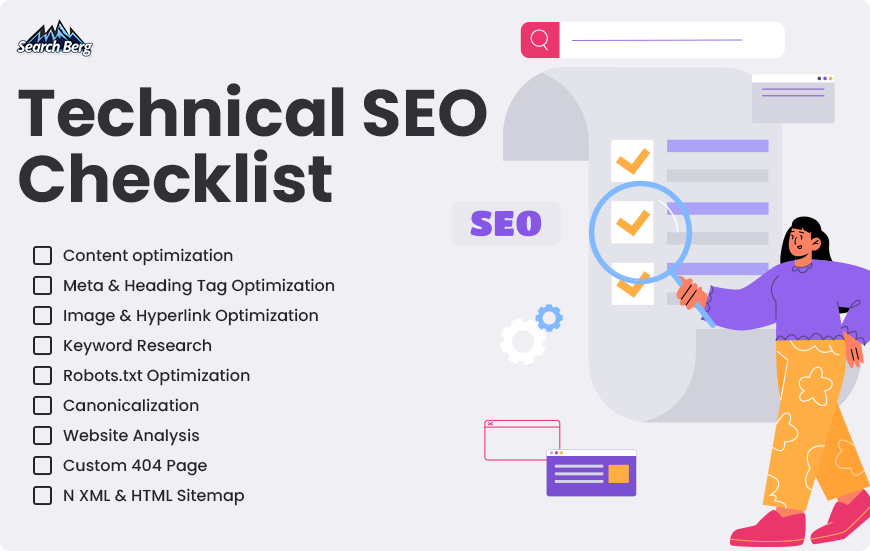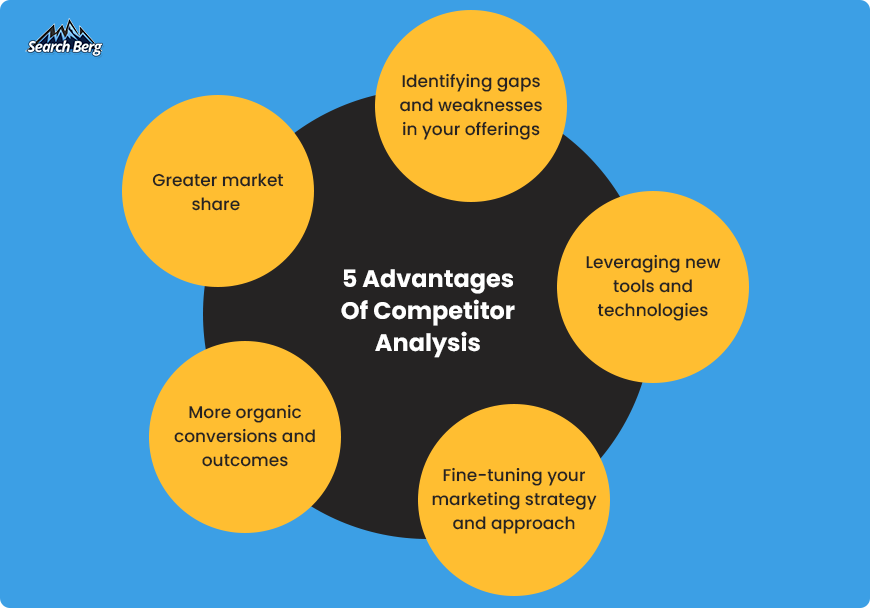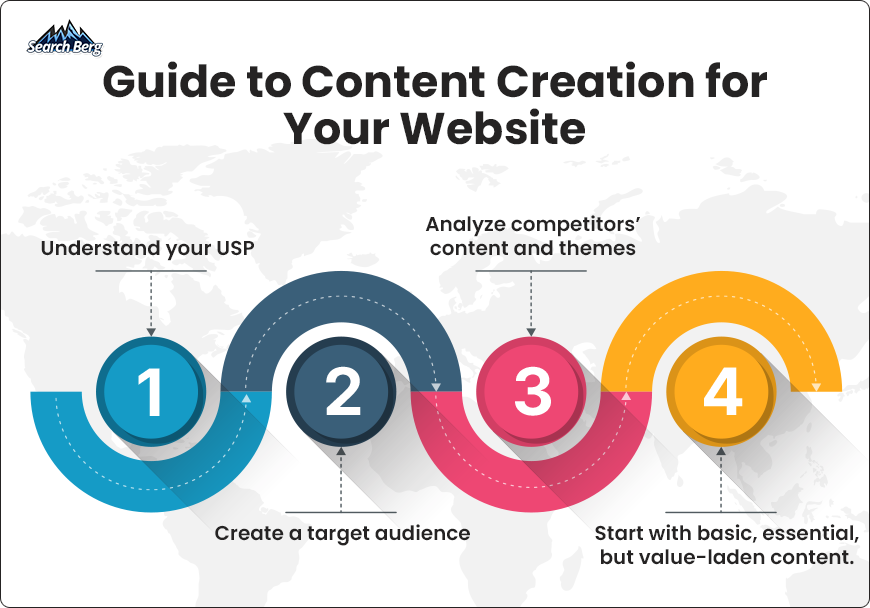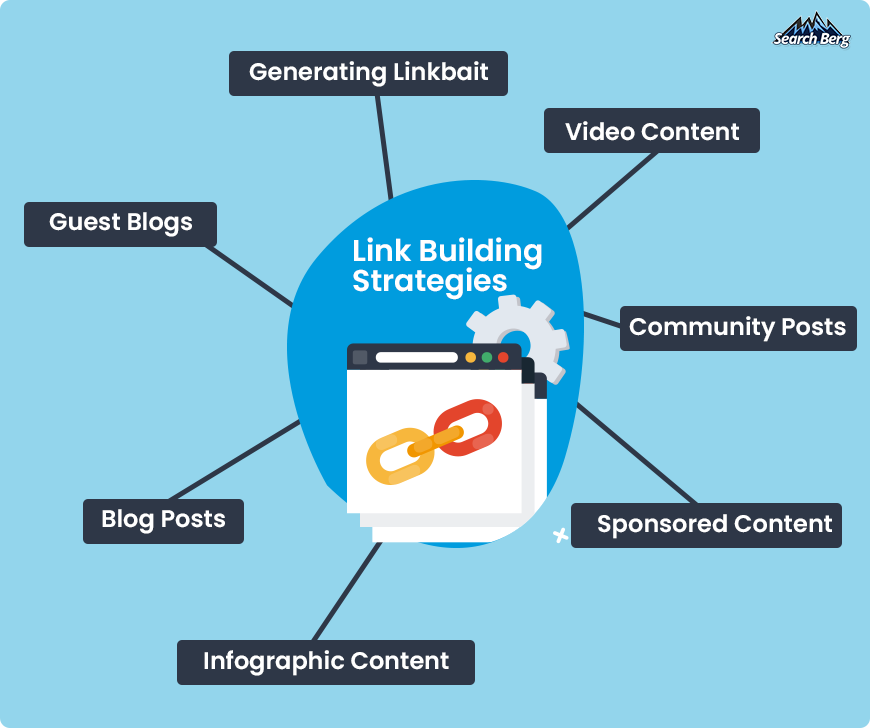Why My Website Isn’t Ranking (And How to Fix It)
Is A Ranking Truly That Important in 2025?
While it sounds hard to believe that a statistic from 2017 applies in 2025, there’s very little evidence to contradict the numbers that 75% of users never really scroll past the first page of Google Search.
This is why, even now, businesses strive to achieve higher website rankings and visibility.
Website ranking refers to the position a website occupies in search engine results pages (SERPs) when users search for specific keywords. A higher ranking means greater visibility and more organic traffic to your website, while a website not ranking can be a stressor.
While most businesses would already be aware of this, Search Engine Optimization (SEO) is the practice of improving a website’s visibility in organic search results. It involves a range of techniques aimed at making a website more attractive to search engines and improving its relevance to user queries.
A website might not be ranking well due to a combination of factors, including poor on-page SEO, weak off-page SEO and issues with techniques, technical issues, low-quality content, and intense competition. Identifying and addressing these SEO issues is crucial to improve search rankings and achieve online success.
In addition to search engine optimization services, it’s important to invest in other techniques and strategies to improve your ranking

Recommended Read: 2024 SEO Recap for Small Businesses: Top AI-Driven Strategies You Can Use
Common Ranking Factors
Search engine algorithms are complex, but some key Google ranking factors consistently influence website ranking. These factors can be broadly categorized into On-Page SEO and Off-Page SEO.
On-Page SEO focuses on optimizing elements directly within your website’s code and content, and fixing website SEO may be the secret to your success.
Keyword Research and Optimization:
- Relevant Keywords: Identifying the specific terms your target audience uses to search for products, services, or information is crucial. These keywords should accurately reflect your content and align with your business goals.
- Keyword Placement: Strategic keyword placement enhances search engine visibility.
- Page Titles: Include primary keywords concisely and accurately.
- Headings (H1-H6): Structure content with relevant keywords in headings to improve readability and signal keyword importance to search engines.
- Meta Descriptions: Compelling meta descriptions entice users to click through from search results. Include relevant keywords naturally.
- Image Alt Text: Descriptive alt text improves accessibility for visually impaired users and provides valuable keyword context to search engines.
- Content: Integrate keywords naturally throughout your content while maintaining readability and user experience.
- Keyword Density and Over-optimization: While keyword density was once a significant factor, excessive keyword stuffing is now penalized by search engines. Focus on creating high-quality, user-friendly content that naturally incorporates relevant keywords for search engine optimization.
High-Quality Content:
- Value Proposition: Create unique, informative, and engaging content that provides real value to your target audience. Answer user questions, solve their problems, or offer valuable insights. It’s how you engage with them more meaningfully, and establish yourself as an industry leader.
- Content Length and Readability: Longer, in-depth content often ranks higher, but prioritizes quality over quantity. Ensure your content is well-structured, easy to read, and uses clear, concise language.
- Content Freshness and Updates: Regularly update existing content to maintain relevance and freshness. This demonstrates to search engines that your website is actively maintained and provides users with the most up-to-date information.
Businesses must work on continually addressing these On-Page SEO factors and issues, you can significantly improve website visibility, increase organic traffic, and ultimately address website SEO issues that may be hindering your search engine rankings.
Technical SEO
Technical SEO encompasses the behind-the-scenes elements that make a website accessible and understandable to search engines. Key aspects include:
- Website Speed and Mobile-friendliness: In today’s mobile-first world, fast loading times are crucial for increasing website visibility. Search engines prioritize websites that load quickly on both desktop and mobile devices. Optimizing images, minimizing HTTP requests, and utilizing browser caching can significantly improve speed.
- Secure Website (HTTPS):
- HTTPS encrypts communication between a website and a user’s browser, ensuring data security.
- Search engines favor secure websites in search results.
- Proper Site Structure and Navigation: A well-organized website with clear navigation helps both users and search engines easily find and understand your content.
- A logical hierarchy with internal links connecting related pages is essential.
- Broken Links and Crawl Errors: Broken links (404 errors) and crawl errors hinder search engine bots from efficiently navigating your website.
- Regularly checking for and fixing these issues is crucial.
- XML Sitemap and robots.txt:
- An XML sitemap provides a roadmap of your website to search engines, helping them discover and index your pages efficiently.
- The robots.txt file instructs search engines which parts of your website they can and cannot crawl.
By addressing these technical SEO factors, you can improve your website’s search engine visibility, enhance user experience, and ultimately boost your online success.

Recommended Read: Beginner’s Guide to SEO: 10 Simple Steps to Get Started (2024 Update)
Off-Page SEO
Off-Page SEO focuses on external factors that influence a website’s search engine ranking.
- Backlinks: Backlinks are incoming links from other websites to your website.
- High-quality backlinks from reputable and relevant sources are crucial for search engine ranking.
- They act as “votes of confidence,” signaling to search engines that your website is trustworthy and authoritative.
- Effective link-building strategies include:
- Guest blogging: Writing high-quality articles for other websites in your industry.
- Outreach: Contacting other website owners and requesting links to your content.
- Influencer marketing: Collaborating with influencers in your niche to promote your website.
- It’s crucial to avoid black hat link-building techniques, such as:
- Link schemes: Participating in link exchange schemes or buying links.
- Link farms: Creating low-quality websites solely for the purpose of linking to your website.
- Social Media Signals: While not a direct ranking factor, social media engagement can indirectly influence search rankings.
- High social media engagement can indicate to search engines that your content is popular and valuable.
- Building a strong social media presence across relevant platforms can help increase brand visibility and drive traffic to your website.
Implementing effective off-page SEO strategies will allow you to build a strong online reputation, increase your website’s authority, and improve your overall search engine rankings.
Recommended Read: Why is Link Building Important for SEO?
Competitive Analysis: Understanding and Outperforming Your Rivals
Competitive analysis is a crucial aspect of any successful SEO strategy. By understanding your competitors’ strengths and weaknesses, you can identify areas for improvement in your own approach and understand why your website is not ranking, and gain a competitive edge in search engine rankings.
Identifying Competitors
- Finding Websites that Rank for Your Target Keywords: Start by identifying the websites that currently rank well for your target keywords. Use search engines like Google, Bing, and DuckDuckGo to search for your keywords and analyze the top 10 results.
- Analyzing their On-Page and Off-Page SEO Strategies:
- On-Page SEO: Analyze the competitors’ website content, including:
- Keyword usage: How are they using your target keywords and related terms?
- Title tags and meta descriptions: Are their titles and descriptions compelling and keyword-rich?
- Headings and subheadings: How are they structuring their content using headings (H1-H6)?
- Image optimization: Are they using relevant alt text for images?
- Content quality and length: Is their content high-quality, informative, and engaging?
- Off-Page SEO: Investigate their backlink profiles:
- Backlink sources: Where are their backlinks coming from? Are they from high-authority websites?
- Anchor text diversity: What kind of anchor text is used for the backlinks?
- Social media presence and engagement: How active are they on social media?
- Identifying Areas for Improvement and Differentiation:
- Content Gaps: Are there any topics or information that your competitors are missing from their content?
- Unique Selling Propositions (USPs): What makes your website or brand stand out from the competition? Highlight your unique strengths and differentiate yourself in your content and marketing efforts.
- Technical SEO: Analyze their website speed, mobile-friendliness, and overall technical SEO performance.
- On-Page SEO: Analyze the competitors’ website content, including:
While all of the above is important, we understand it can be overwhelming. This is where our expert SEO services can help you upgrade your website presence.
Competitive Analysis Tools
Several tools can help you gather competitor data and conduct in-depth analyses.
Our professional team members will utilize these tools, and by conducting thorough competitor analysis, you can gain valuable insights into the competitive landscape, identify areas for improvement in your own SEO strategy, and ultimately increase your website’s visibility and organic traffic.

Troubleshooting and Fixing Ranking Issues
Once you or our professional SEO services members have identified potential roadblocks to your website’s rankings, it’s time to take action. This involves a multi-pronged approach to address technical, content, and off-page SEO issues.
Website Audit
A thorough website audit is the foundation for any successful SEO campaign and boosting website rankings. It involves a comprehensive examination of your website to identify and address any technical or content issues that may be hindering your search engine rankings.
- Conducting a Comprehensive Website Audit: This may include:
- Technical SEO Audit: Assessing website speed, mobile-friendliness, HTTPS status, site structure, and crawl errors.
- On-Page SEO Audit: Analyzing title tags, meta descriptions, header tags, image alt text, and keyword usage.
- Content Audit: Evaluating the quality, relevance, and freshness of your existing content.
- Using SEO Auditing Tools: Utilize tools like SEMrush, Ahrefs, or Screaming Frog to automate many aspects of the audit process and generate detailed reports.
- Hiring an SEO Expert: For a more in-depth and comprehensive analysis, consider hiring an experienced SEO expert to conduct a professional audit.
Content Strategy
High-quality, valuable content is the cornerstone of any successful SEO strategy.
- Creating a Content Calendar: Develop a content calendar to plan and schedule your content in advance. This ensures consistent publishing and helps you maintain a steady flow of fresh content.
- Prioritizing High-Quality, Valuable Content: Focus on creating content that is informative, engaging, and relevant to your target audience.
- Conduct thorough keyword research to identify relevant topics.
- Use a clear and concise writing style that is easy to read and understand.
- Incorporate visuals like images and videos to enhance user engagement.
- Implementing Content Marketing Strategies: Explore various content marketing strategies to reach a wider audience:
- Blogging: Regularly publish high-quality blog posts on relevant topics.
- Video Marketing: Create engaging videos (tutorials, explainer videos, product demos) and share them on platforms like YouTube.
- Infographics: Create visually appealing infographics to present data and information in an engaging way.

Technical Fixes
Addressing technical issues is crucial for improving website speed, user experience, and search engine crawlability.
- Improving Website Speed and Mobile-friendliness:
- Image optimization: Compress images to reduce file size without compromising quality.
- Minify CSS and JavaScript: Our SEO services will remove unnecessary characters from code to reduce file size.
- Leverage browser caching: Allow browsers to store website assets locally to speed up loading times.
- Implement a Content Delivery Network (CDN): Distribute website content across multiple servers to improve loading speeds for users in different locations.
- Fixing Broken Links and Crawl Errors: Regularly check for and fix broken links (404 errors) and crawl errors using tools like Google Search Console.
- Implementing Schema Markup: Add schema markup to your website to help search engines better understand your content and display richer results in search results pages (e.g., star ratings, product availability).
Backlink Building
Earning high-quality backlinks from reputable websites is essential for improving your website’s authority and search engine rankings.
- Developing a Sustainable Link-Building Strategy:
- Guest Blogging: Write high-quality articles for other websites in your industry and include a link back to your own website.
- Outreach: Contact other website owners and request links to your valuable content.
- Influencer Marketing: Collaborate with influencers in your niche to promote your website and content.
- Broken Link Building: Find broken links on other websites and offer to replace them with links to your relevant content.
- Focusing on Earning High-Quality Backlinks: Prioritize backlinks from authoritative websites in your industry.
- Analyze the quality and relevance of the websites linking to your competitors.
- Avoid black hat link-building techniques, such as buying links or participating in link schemes.
By diligently addressing these issues and implementing a robust SEO improvement strategy, you can significantly improve your website’s search engine rankings, increase organic traffic, and achieve your online business goals.

Monitoring and Tracking Results
SEO is an ongoing process. To ensure our SEO services are effective, it’s crucial to continuously monitor and track your progress.
Tracking the right metrics is essential for understanding your website’s performance and identifying areas for improvement. Key Performance Indicators (KPIs) to monitor include organic traffic, keyword rankings, bounce rate, time on site, and conversion rates.
- Organic Traffic: Track the amount of traffic coming to your website directly from search engines. Analyze organic sessions and the number of unique users who visited your website from organic search.
- Keyword Rankings: Monitor the positions of your target keywords in search engine results pages (SERPs) over time. Use keyword tracking tools to track your rankings on a regular basis (daily, weekly, or monthly).
- Bounce Rate: The percentage of visitors who leave your website after viewing only one page. A high bounce rate may indicate that your content is not engaging or relevant to the user.
- Time on Site: The average amount of time visitors spend on your website. A longer time on site generally indicates that users are finding your content valuable and engaging.
- Conversion Rates: Track the percentage of website visitors who complete a desired action, such as making a purchase, filling out a form, or subscribing to a newsletter.
Google Analytics and Google Search Console are invaluable tools for monitoring website performance and rankings. Google Analytics provides in-depth insights into website traffic, user behavior, and conversion rates. You can track organic traffic, user demographics, bounce rate, time on site, and more. Analyze user behavior on your website to identify areas for improvement.
Google Search Console provides valuable data on how Google views your website. Monitor your website’s search performance, including keyword rankings, click-through rates (CTR), and crawl errors. Identify and resolve any technical issues that may be impacting your website’s visibility.
Regularly review your website’s performance data using these tools. Identify any trends or patterns in your traffic data. Analyze which keywords are driving the most traffic and which pages are performing best.

Based on your data analysis, make adjustments to your SEO strategy as needed. If certain keywords are not performing well, consider refining your keyword targeting strategy. If bounce rates are high, improve the quality and relevance of your content. If website speed is slow, implement technical fixes to improve loading times and align with Google’s ranking factors.
The world of SEO is constantly evolving. Stay informed about the latest algorithm updates, best practices, and emerging trends by reading industry blogs and publications, attending industry conferences and webinars, and following reputable SEO experts and thought leaders on social media.
By consistently monitoring and tracking your results, making data-driven decisions, and staying updated on the latest trends, you can continuously improve your website’s SEO performance and achieve sustainable organic growth.
Recommended Read: What Does An SEO Specialist Do?
Trust Search Berg with Boosting Your Website’s Ranking and Visibility
A website’s failure to rank well in search engine results can stem from a variety of factors, including poor on-page SEO, weak off-page SEO, technical issues, low-quality content, and intense competition.
When you hire our SEO services, we begin by conducting thorough website audits, implementing a robust content strategy, addressing technical issues, and developing a sustainable link-building strategy, you can significantly improve your website’s search engine visibility.
Remember that SEO is an ongoing process.
Ready to boost your website’s visibility and drive organic traffic? Contact Search Berg today for a free consultation. Our expert SEO team can help you achieve your online marketing goals.
We offer a comprehensive suite of SEO services tailored to your specific needs. This includes in-depth website audits, on-page and off-page SEO optimization, the development and execution of a robust content strategy, technical SEO improvements, competitive analysis, and ongoing monitoring and reporting.
Visit our website or call us today to learn more about how Search Berg can help you dominate search engine results pages and achieve sustainable online growth.
Get More Insider Tips and Recommendations
Get SEO insights and recommendations from our SEO experts.
No spam, just expert advice!














